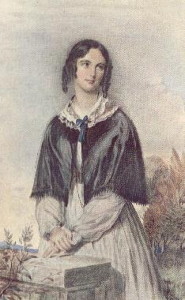 Charlotte Yonge is one of the most influential and important of Victorian women writers; but study of her work has been handicapped by a tendency to patronise both her and her writing, by the vast number of her publications and by a shortage of information about her professional career. Scholars have had to depend mainly on the work of her first biographer, a loyal disciple, a situation which has long been felt to be unsatisfactory. We hope that this edition of her correspondence will provide for the first time a substantial foundation of facts for the study of her fiction, her historical and educational writing and her journalism, and help to illuminate her biography and also her significance in the cultural and religious history of the Victorian age.
Charlotte Yonge is one of the most influential and important of Victorian women writers; but study of her work has been handicapped by a tendency to patronise both her and her writing, by the vast number of her publications and by a shortage of information about her professional career. Scholars have had to depend mainly on the work of her first biographer, a loyal disciple, a situation which has long been felt to be unsatisfactory. We hope that this edition of her correspondence will provide for the first time a substantial foundation of facts for the study of her fiction, her historical and educational writing and her journalism, and help to illuminate her biography and also her significance in the cultural and religious history of the Victorian age.
Featured Letters...
My dear Miss Bourne I waited a few days to see if time would come to make something like a drawing, but waited in vain, so now I send a mere tracing of what my notion is, as well as the size of our letters and Numerals, the Exodus in red with blue border, the figures blue with red, and white patterns on all. I wish they would look as pretty in the sketch as ... continue reading
My dear Mrs Blackburn I have bought myself a Grimm, and studied all the Thumbs that have come in my way, and have come to the conclusion that the way to make him pretty will be after all as you suggested, to begin with King Arthur. The unmitigated nursery legend with all the swallowing and the tricks is not poetical, and must have been vulgarized. So I will take what of Round table stories will suit, ... continue reading
Dear Miss Durton
Your Good Friday has been a long time on its way, owing to the misdirection, but I have it now, and I wish I could have got it into the Monthly Packet for Easter, though even if it had come direct it would not have been in time for April.
I am very glad to hear more of Ottavia’s family and will insert this when I can. Perhaps another time you had better write ... continue reading
